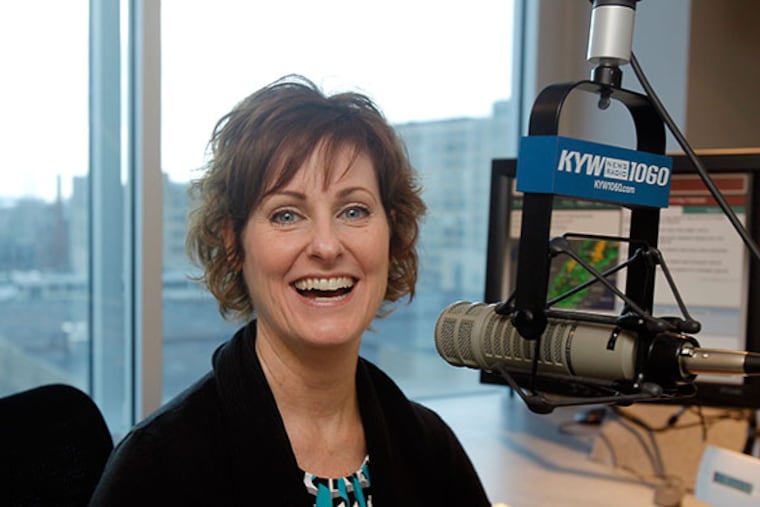KYW ratings skid
When the latest quarterly radio ratings for the Philadelphia market were released this week, one station's numbers really jumped off the page.

When the latest quarterly radio ratings for the Philadelphia market were released this week, one station's numbers really jumped off the page.
And right through the floor.
KYW Newsradio (1060 AM) had its share of listeners drop by a dismaying 54 percent over three months from February through April, a period that was relatively stable for its competitors, according to figures from the rating service Nielsen Audio.
The obvious explanation would be vernal. As Philadelphians go from February to April, and the likelihood of school closings and transit delays fades, listening to the all-news station becomes less essential.
But this decline is too steep to be purely seasonal.
"It's traditional to see some melt - no pun intended - between winter and spring numbers for KYW," says Dave Allan, chairman of the marketing department at St. Joseph's University. "But this is bigger than most."
Radio industry analyst Jerry Del Colliano also sees the problem as meteorological. But only to a degree.
"KYW ratings are off because the snow stopped falling," he says. "Since then, there hasn't been a national or a local story Philadelphians care about. But [the numbers] haven't gotten this low in my memory."
Calls to KYW general manager Steve Butler were not returned.
The AM warhorse could be a victim of generational and technological factors.
"KYW suffers from an old, stale format," says Christopher Harper, a journalism professor at Temple University. "People can get their news and information from other sources."
Even the station's primary selling points, like "traffic on the twos," seem to belong to a different era.
"I depend on OnStar; other people have Garmin," says Harper. "They'll detect and guide you around traffic problems on your route to work."
"You can have customized news and traffic alerts sent to you on your phone," says Bernie Shimkus, director of research at Harmelin Media in Bala Cynwyd. "The instantaneousness of news could have a bigger impact on the all-news formats than on many others."
Perhaps you're tuning in just for the reassurance of the familiar. "KYW is a habit," says Allan. "We know the Schuylkill [Expressway] will be backed up at the Conshohocken curve. We still want to hear them say it."
But it's a dying habit.
"Find me someone under 40 who listens to radio," says Del Colliano. "Radio is on the decline, especially with millennials, and there are 95 million of them coming on. They listen to Spotify or Pandora or Beats.
"I know the numbers for KYW are bad, but why isn't anyone asking the real question here? How does an AM station with a lousy signal end up at or near No. 1 in the market in the year 2014? KYW has been defying the odds for more than 10 years. But they have a special relationship with KYW in Philly."
The station, like the rest of the industry, faces survival challenges in the ever-accelerating digital era. But it may also be paying a steep and unfair price for circumstances beyond its control.
"We could be looking at fatigue factor," says Shimkus, "when you think of the winter Philadelphians had to endure. 'I don't want to even hear the weather.' 'I don't want to turn on the news.' 'I'm afraid of what I might hear.' "
215-854-4552 @daveondemand_tv